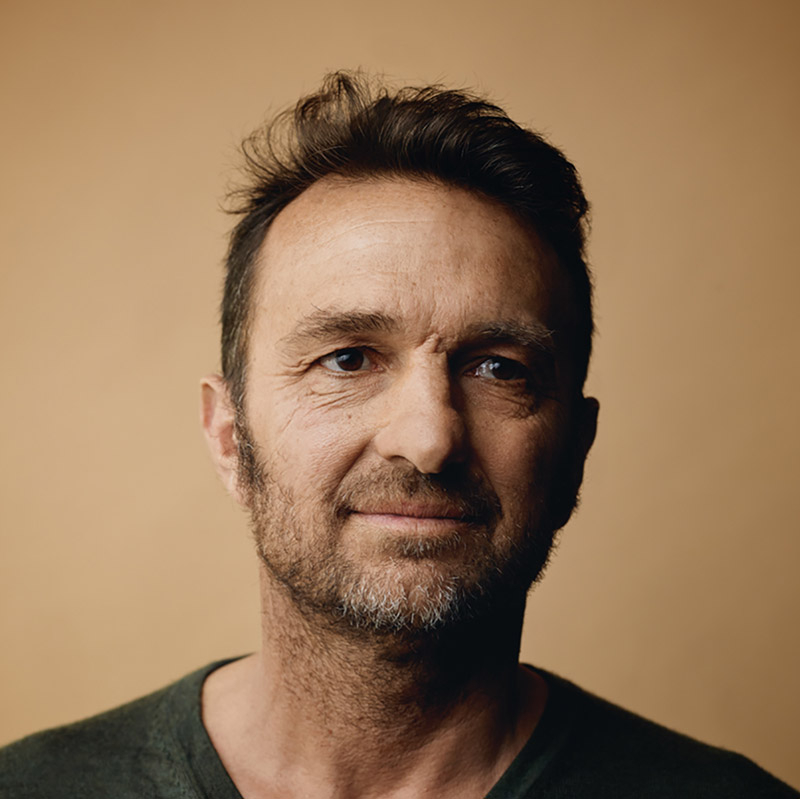22 November 2022
By Tim Baker
What do you think when you hear the term “integrative oncology”?
In my experience, a lot of people are a bit sceptical about the term, imagining it as code for spurious, expensive and alternative cancer treatments. This has been a particular frustration of mine since writing my cancer memoir Patting The Shark, documenting my journey with metastatic prostate cancer, and my own determined lifestyle strategies to try and maintain quality of life and mitigate the side effects of cancer treatment. In the absence of clear guidelines, I had to come up with my own version of integrative oncology, incorporating exercise, nutrition and meditation alongside conventional therapies.
Recently, several of Australia’s largest and most progressive, specialist cancer hospitals got together to launch a White Paper at Parliament House in Canberra, calling for integrative oncology to be embraced as part of standard care. And you’d better believe Peter MacCallum Cancer Centre, Chris O’Brien Lifehouse, Solaris Cancer Care and Bloomhill Cancer Care are not advocating for healing crystals, carrot juice and apricot kernels to replace chemotherapy, radiation and surgery.
Simply, integrative oncology, as defined in the White Paper and based on the research of Witt and colleagues (2017), is:
“a patient-centred, evidence-informed field of cancer care that utilises mind and body practices, natural products and/or lifestyle modifications from different traditions alongside conventional cancer treatments. Integrative Oncology aims to optimise health, quality of life, and clinical outcomes across the cancer care continuum and to empower people to prevent cancer and become active participants before, during and beyond cancer treatment.”
The White Paper goes further to clarify the specific characteristics of integrative oncology that distinguish it from “alternative medicine”:
- “Safety and best available evidence are priorities in Integrative Oncology.
- It is accessed in collaboration with traditional clinical cancer care services.”
Integrative oncology promotes the use of complementary and supportive therapies such as exercise, nutrition, stress reduction, acupuncture, massage, yoga, the evidence-based use of certain herbs and supplements, through all stages of cancer treatment.
The White Paper is also very clear about the goals of integrative oncology, and that is to provide “a framework for the safe integration of new discoveries and complementary therapies alongside core modalities of treatment (including among others surgery, chemotherapy and radiation) to:
- optimise outcomes
- enhance the experience of people with cancer and their families
- support treatment goals and adherence
- manage side-effects
- provide emotional support.”
Studies show 77% of cancer patients who use complementary therapies believe it improves their quality of life, 73% say it makes them feel hopeful, and 71% believe it boosts their immune system. Given the growing evidence base for their use, international guidelines have been developed recommending acupuncture, massage, meditation, yoga, music therapy, exercise, and nutrition for alleviating common symptoms, such as fatigue, pain, nausea, hot flashes, and sleep disorders.
In Australia, specialist cancer centres like Chris O’Brien Lifehouse in Sydney and Peter MacCallum in Melbourne have long promoted the use of complementary therapies to improve patient outcomes and are now calling for national guidelines for their use. Research has shown patient acceptance and positive experiences of these types of therapies in numerous studies.
A survey of 135 people with cancer attending Solariscare, in WA, found that all (100%) would recommend complementary therapies to other people with cancer. A qualitative study of 16 cancer patients at Solariscare found that participants valued the environment, pinpointing three positive aspects: facilitating comfort, increasing personal control and helping make sense of the cancer experience.
At Chris O’Brien Lifehouse research has shown patients receiving acupuncture and reflexology during chemotherapy reported reduced symptom burdens and less distress.
Importantly, a policy review confirms that integrative oncology aligns with Australia’s established cancer principles and policy and will also “actively help to achieve strategic goals across the country”.
The release of the White Paper is a long overdue recognition of the important role complementary therapies can play in improving quality of life, mitigating side effects and improving patient outcomes for those going through cancer treatment. In this regard, Australia still lags behind many parts of the world. In the US, the majority of 45 National Cancer Institute (NCI) -designated cancer centres provide Integrative Oncology to patients, including acupuncture/massage (73% each), meditation/yoga (69% each), nutrition consultations (91%), dietary supplements (84%), and herbs (67%).
The release of the White Paper is welcome news for cancer patients seeking credible, evidence-based therapies to help withstand the rigours of cancer treatment. It establishes six key recommendations to promote integrative oncology as a part of standard care throughout Australia:
- Develop guidelines for Integrative Oncology in Australia
- Identify and gain consensus on the critical success factors
- Prioritise routine collection of data
- Establish funding strategy
- Establish referral pathway
- Foster and progress a collaborative research program
About the Author

Tim Baker is an award-winning author, journalist and storyteller specialising in surfing history and culture, working across a wide variety of media from books and magazines to film, video, and theatre. Some of his most notable books include “Occy”, a national bestseller and chosen by the Australia Council as one of “50 Books You can’t Put Down” in 2008, and “The Rip Curl Story” which documents the rise of the iconic Australian surf brand to mark its 50th anniversary in 2019. Tim is a former editor of Tracks and Surfing Life magazines. He has twice won the Surfing Australia Hall of Fame Culture Award.
Tim was diagnosed with stage 4, metastatic prostate cancer in 2015 with a Gleason score 9. He was told he had just five years of reasonable health left, but seven years on, at 57, he’s still surfing, writing, and enjoying being a dad. His latest book, Patting The Shark, also documents his cancer journey and will be published in August. Tim will be sharing weekly insights into his journey to help other men who have also been impacted by prostate cancer.
